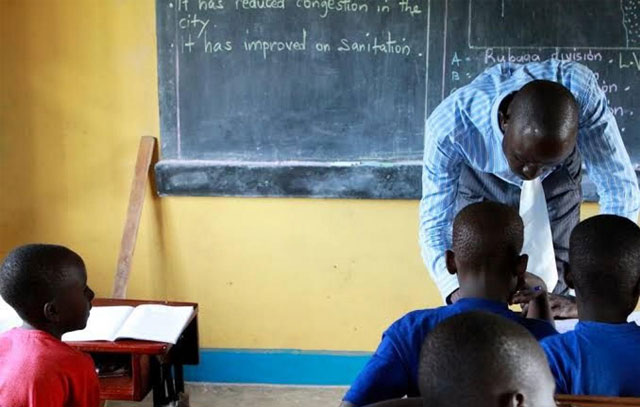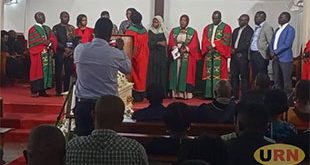
Wakiso, Uganda | THE INDEPENDENT | Several private schools in Kampala, Mukono and Wakiso districts have revised the payment mode for their teachers, as they struggle to keep afloat after the COVID-19 uncertainty.
Teachers who sought anonymity told URN that the schools are paying them as low as 2,000 Shillings for a 40-minute lesson. Such payments were initially designed by schools to accommodate part-time teachers, however, at a higher rate.
One of them said that payments are now released on a weekly basis after computation of the number of lessons taught. For instance, if a teacher taught four lessons each day, he is paid a sum of 40,000 Shillings at the end of the week, which would also translate into 160,000 Shillings at the end of the month.
“When we returned from the COVID-19 lockdown, the school changed the payment process from the usual monthly salary to daily wage,” one of the teachers in a secondary school said. adding that many will still have to struggle to earn a living just like they were doing during the lockdown.
Abdul-Salaam Nsanja, an administrator at Kinaawa High School, in Kawempe confirms that their school is also applying a similar policy. “To survive in business, the school had to look for means that favour both the school and the staff. We renegotiated the payment terms and adopted the per lesson mode,” says Nsanja.
However, Nsanja adds that on top of the 2,000 Shillings’ payment per lesson, the school has set a 230,000 Shillings base fee for all teachers. “The base fee is paid through their respective accounts and the per lesson payment is given to them in cash at an agreed time. It can be a week or a month,” he adds.
Hajji Abdulnoor Ssentamu, the headteacher at Mbogo College School, also notes that to survive in business, every school seems to be coming up with a new formula of payment to find a compromise between the teachers and school management. He notes that the payment formula is also seeing schools adopt new timetables that allow stretched lesson periods to move away from the traditional 40-minute lessons to ensure that teachers are given fewer reporting days.
Although Hajji Ssentamu did not disclose the policy being applied by his own school, he says that there was a general salary cut because the operational costs were still high yet schools have not yet fully reopened.
Ali Matovu, a teacher at one of the primary schools in Kasangati says that the rate is too small for teachers to survive. “There is nothing you can do with this money. Some teachers are renting with families to look after. no wonder those who have found alternative sources of income have left the profession and might not come back,” says Matovu.
Juma Mwamula, the General Secretary of the Uganda Private Teachers’ Union, says that although the schools are operating under abnormal situations, some administrators and school proprietors are using it as an excuse to underpay teachers.
Before the COVID-19 lockdown, there has been a hot discussion on the payment and welfare of teachers in private schools. Mwamula says given the fact that the sector is liberalized, in addition to the government’s failure to set a minimum wage nothing much is bound to change soon.
He, however, advises fellow teachers to set up alternative sources of income to supplement their meagre salaries without necessarily deserting the profession.
*******
URN
 The Independent Uganda: You get the Truth we Pay the Price
The Independent Uganda: You get the Truth we Pay the Price



